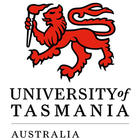PhD – Doctor of Philosophy (Agriculture)
PhD – Doctor of Philosophy (Agriculture)
The Doctoral Degree qualifies individuals who apply a substantial body of knowledge to research, investigate and develop new knowledge, in one or more fields of investigation, scholarship or professional practice. Research degree candidates are driven by naturally inquiring minds, and have a passion to solve problems and advance humanity. A…
Categories
COURSE DESCRIPTION
The Doctoral Degree qualifies individuals who apply a substantial body of knowledge to research, investigate and develop new knowledge, in one or more fields of investigation, scholarship or professional practice.
Research degree candidates are driven by naturally inquiring minds, and have a passion to solve problems and advance humanity. A research degree allows you to conduct your own, unique research, and produce new knowledge and expertise that is innovative, relevant, and enlightened.
Research degrees equip graduates with the transferable skills and attributes necessary for challenging and diverse roles in industry, government and business, as well as in research and academic organisations.
At the University of Tasmania, a research degree is a true mark of endeavour, providing you with the training and skills necessary for a career in academia and beyond.
Course Objectives
A Doctor of Philosophy qualifies individuals to develop and use expertise at the frontier of a field of research and make a significant original contribution to knowledge through their research.
Graduates will:
apply a substantial body of knowledge to research, investigate and develop new knowledge in one or more fields of investigation, scholarly expertise or professional practice.
acquire the capacity to formulate a research question and to develop mastery of appropriate conceptual and methodological practices.
acquire advanced specialist research training and provide evidence for independent thought and critical analysis, effective communication and/or expression and expert knowledge of the discipline within a broader framework of knowledge in the international context.
A degree of Doctor of Philosophy is awarded on the basis of a Thesis prepared under supervision that makes an original, significant and extensive contribution to knowledge and understanding in the relevant field of study, as judged by independent experts applying accepted contemporary international standards.
Learning Outcomes
Knowledge
Graduates of a Doctor of Philosophy will be able to:
make an original and substantial contribution to knowledge of a subject within or across academic disciplines or areas of professional practice;
demonstrate a systemic and critical understanding of a substantial and complex body of knowledge of a subject within or across academic disciplines or areas of professional practice; and
demonstrate a detailed understanding of applicable techniques for research and advanced academic enquiry.
Skills
Graduates of a Doctor of Philosophy will be independent researchers able to:
evaluate the appropriateness and usefulness of various perspectives, methods and processes in research projects;
independently and systematically develop, adapt and implement research methodologies to extend and redefine existing knowledge or professional practice;
expert technical and creative skills applicable to the field of work or learning; and
critically analyse, evaluate and synthesise new and complex ideas;
work collaboratively in a team, recognising the need for and value of complementary expertise/skill sets, and work productively with other people; and
Career outcomes
The Doctor of Philosophy is a demonstration of a candidate’s ability to conceptualise and implement an independent program of research, manage a project, organise resources, work and cooperate with colleagues and communicate effectively in writing at a high level. As a result, PhD graduates have the opportunity to pursue diverse career paths, including professions in research and academia, as well as a broad spectrum of professions in the public and private sector.
REQUIREMENTS
A Bachelor Honours degree of at least second-class upper standard with a Minimum Research Component. A Master of Research Degree with a Minimum Research Component. A Master’s Degree (Coursework) or Graduate Diploma with a Minimum Research Component.
IELTS (International English Language Testing Service – academic version) minimum overall score – 7.0 minimum additional scores No band less than 6.5; TOEFL (Internet-based Test of English as a Foreign Language) minimum overall score – 94 minimum additional scores Minimum 26 for writing and speaking, and 20 for reading and listening; PTE Academic (Pearson Test of English) minimum overall score – 65 minimum additional scores Minimum 65 for writing and speaking with no other score lower than 58.
EDUCATIONAL INSTITUTION
The University of Tasmania was officially founded on 1st January 1890 and is located at Sandy Bay, Tasmania. In addition to the main campus at Sandy Bay, it also operates out of the Newnham Campus and the Cradle Coast Campus. The most popular courses offered are the environmental studies that include wilderness management, marine sciences and indigenous studies in Tasmanian literature. Other unconventional courses include agriculture development, studies on the community and population and ocean study programs. The university also comprises of a Music Conservatorium, Art school and a School of Clinical studies.




